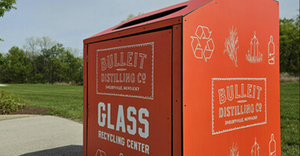10 Takeaways from California's New Waste Management Study
Waste collection franchising by cities is one of the key ways municipalities can meet California’s goal to reduce landfilling by 75 percent, according to a new study on how to manage waste and recycling in the region.
The report, “Cleaning Up Waste and Recycling Management and Securing the Benefits” by the Los Angeles Alliance for a New Economy (LAANE), comes after the U.S. Conference of Mayors recently adopted a measure that calls for federal and state governments to recognize cities’ rights to enact ordinances to reduce waste in their communities, according to a news release.
The report examines the effects of waste in recycling, the systems of management and makes reform recommendations.
Here are 10 highlights of the report:
All cities should adopt zero waste goals. They should maximize recycling and reduce waste and pollution as much as possible.
Cities should implement recycling and organic waste collection in separate containers from waste. Cities with a three-bin collection system report up to 80-percent diversion.
Organic waste should be composted. California no longer considers alternative daily cover as diversion.
Education is key and will enhance participation and reduce contamination.
Cities with franchise systems have flexibility to tailor contract requirements to meet customer or city needs. It can result in greater efficiency and decreased disposal, saving customers and haulers money.
Cities are moving away from non-exclusive franchising and open permit systems. Multiple haulers exacerbate the negative environmental impact of trucks. And the other systems lack accountability mechanisms, the report states.
With industry consolidation, non-exclusive franchise and open permit systems prevents meaningful competition and puts it on price, rather than performance.
Municipalities operating waste and recycling collection provide them with the capacity to ensure high standards through direct administration.
Cities with privatized collection can achieve high standards through an exclusive franchise system. The most qualified bidder gets the contract, the report maintains.
Rigorous waste system administration can ensure that cities comply with California laws on greenhouse gas reduction, 50-percent disposal reduction, mandatory commercial recycling and compost collection and the statewide recycling goal of 75 percent.
About the Author(s)
You May Also Like


